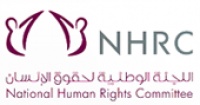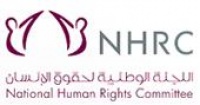Qatar: poet imprisoned for reciting a poem receives pardon and is released
 Alkarama welcomes the release, on 15 March 2016, of Mohamed Al-Ajami, a Qatari poet who had been sentenced to 15 years' imprisonment for writing and reciting, in his home, a poem criticising Arab governments and praising the Tunisian revolution in 2010. Al-Ajami was arrested in 2011 and sentenced in 2013 to 15 years in prison for "inciting to overthrow the regime" and "insulting the Emir".
Alkarama welcomes the release, on 15 March 2016, of Mohamed Al-Ajami, a Qatari poet who had been sentenced to 15 years' imprisonment for writing and reciting, in his home, a poem criticising Arab governments and praising the Tunisian revolution in 2010. Al-Ajami was arrested in 2011 and sentenced in 2013 to 15 years in prison for "inciting to overthrow the regime" and "insulting the Emir".
Qatar: Committee against Torture 2014 - List of Issues Prior to Submission of the Third Periodic Report of Qatar due in 2016
Qatar: Committee against Torture 2014 - Alkarama's Submission to the List of Issues in View of the Consideration of Qatar’s Third Periodic Report
Qatar: National Human Rights Committee To Keep Status A Despite Lack of Independence from the Executive
On 26 January 2016, the Sub-Committee on Accreditation (SCA) of the International Coordinating Committee of National Institutions for the Promotion and Protection of Human Rights (NHRIs) published its report recommending that the Qatari National Human Rights Institution (NHRI) − the National Human Rights Committee (NHRC) − keeps its A status, as fully compliant with the Paris Principles − the international standards established to ensure the NHRIs independence from the government and effective promotion and protection of human rights. While taking note of this decision and congratulating the NHRC, Alkarama remains concerned over its lack of independence from the executive, as stated in our report submitted to the SCA.
Qatar: UN Experts Call for Release of Poet Imprisoned for Writing and Reciting a Poem
On 20 October 2015, United Nations human rights experts urged the Qatari authorities to release Qatari poet Mohammed Al Ajami, who was sentenced to 15 years' imprisonment for writing and reciting a poem, at home, criticising Arab governments and praising the Tunisian revolution in 2010.
Qatar: National Human Rights Committee's Subordination to the Executive Undermines its Capacity to Publicly and Freely Address Human Rights Violations
On 16 July 2015, Alkarama submitted a report to the Sub-Committee on Accreditation (SCA) of the International Coordinating Committee of National Institutions for the Promotion and Protection of Human Rights (ICC-NHRI) on Qatar's National Human Rights Committee (NHRC) which will be reviewed at the SCA next session on 16-20 November 2015. Pointing out to its subordination to the executive power, Alkarama called upon the SCA to downgrade Qatar's NHRC status from "A" to "B" to indicate its lack of compliance with the Paris Principles – the international standards established to ensure the NHRIs independence from the government and effective promotion and protection of human rights. In its review of the Qatari NHRI, the SCA will assess, among others, its pluralist representation of society, its independence from the government and the scope of its mandate.
Qatar: UN Expert Raises Strong Concerns over Justice System
On 18 June 2015, during the United Nations Human Rights Council (HRC)'s 29th session, the UN Special Rapporteur on the Independence of Judges and Lawyers (SR IJL), Gabriela Knaul presented the report of her visit to Qatar, from 19 to 26 January 2014, which aimed to assess the independence of the country's judiciary. Although Mrs Knaul welcomed the State's progress in developing its justice system – through recognising the principles of separation of powers and the independence of the judiciary in its Constitution – as well as its engagement with the UN human rights mechanisms, she expressed deep concerns over flaws in the justice system, especially regarding due process and fair trial guarantees.
 Algeria
Algeria Bahrain
Bahrain Djibouti
Djibouti Egypt
Egypt Iraq
Iraq Palestine/Israel
Palestine/Israel Jordan
Jordan Kuwait
Kuwait Lebanon
Lebanon Libya
Libya Mauritania
Mauritania Morocco
Morocco Oman
Oman Qatar
Qatar Saudi Arabia
Saudi Arabia Sudan
Sudan Syria
Syria Tunisia
Tunisia United Arab Emirates
United Arab Emirates Yemen
Yemen Other Countries
Other Countries




